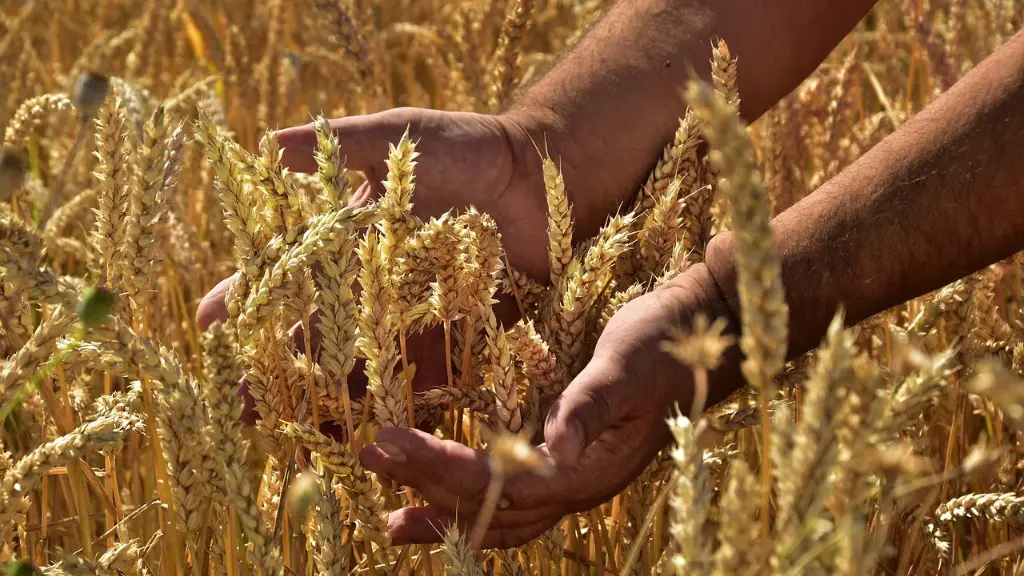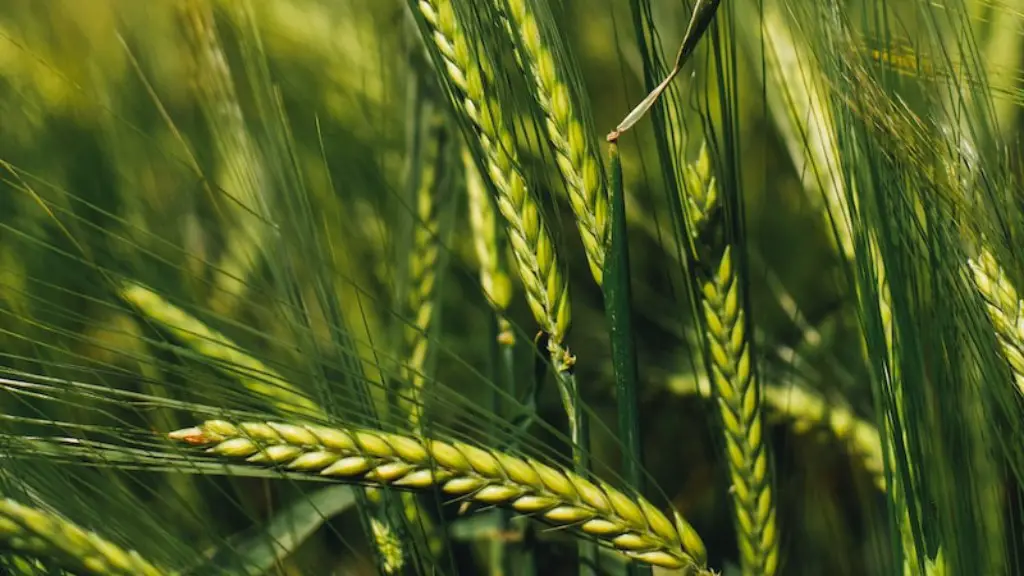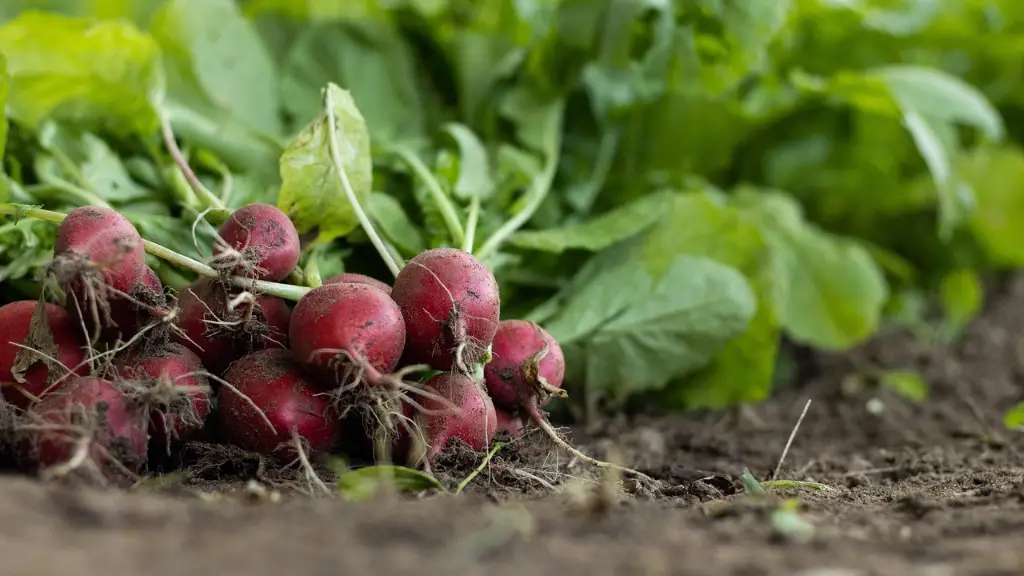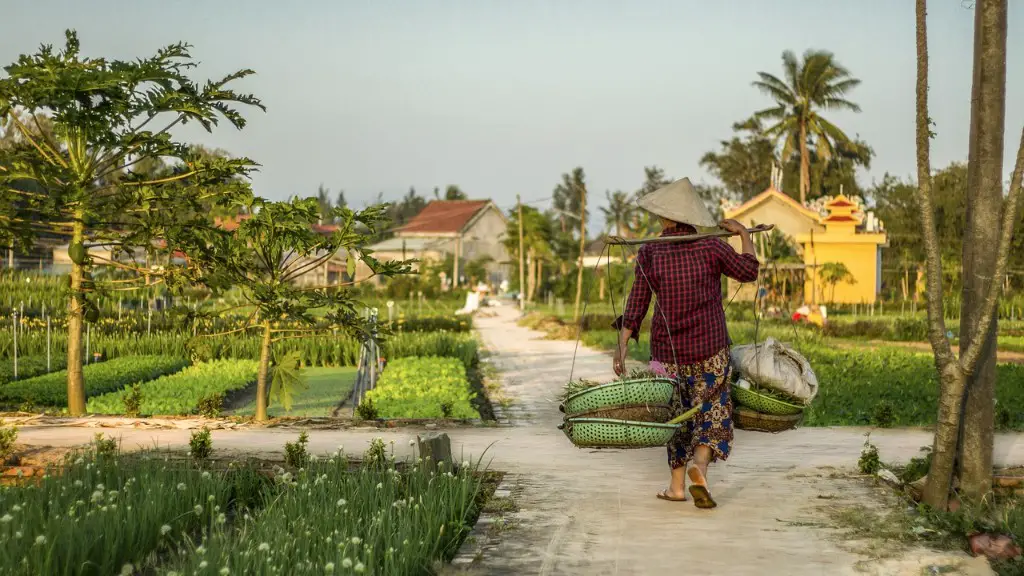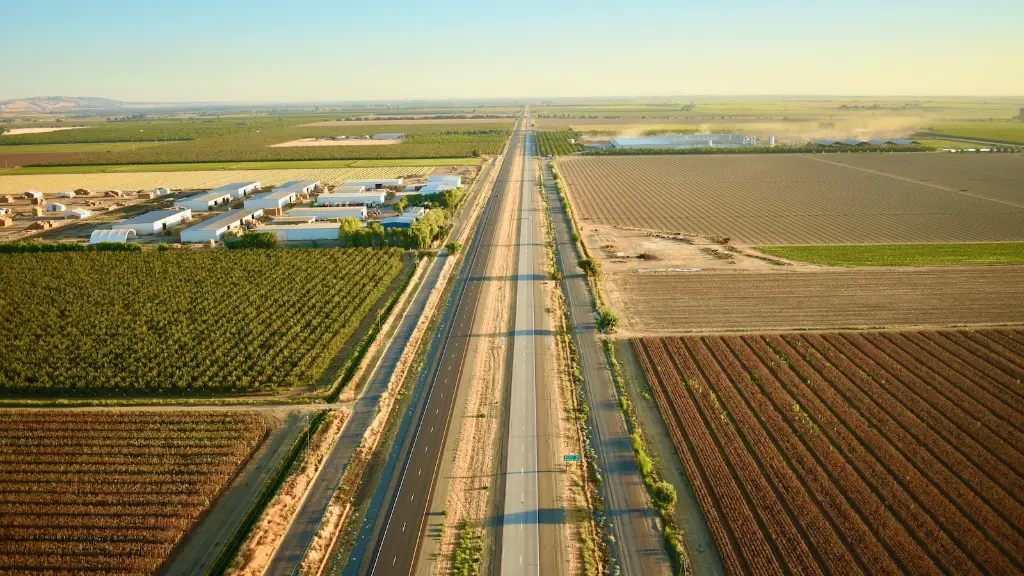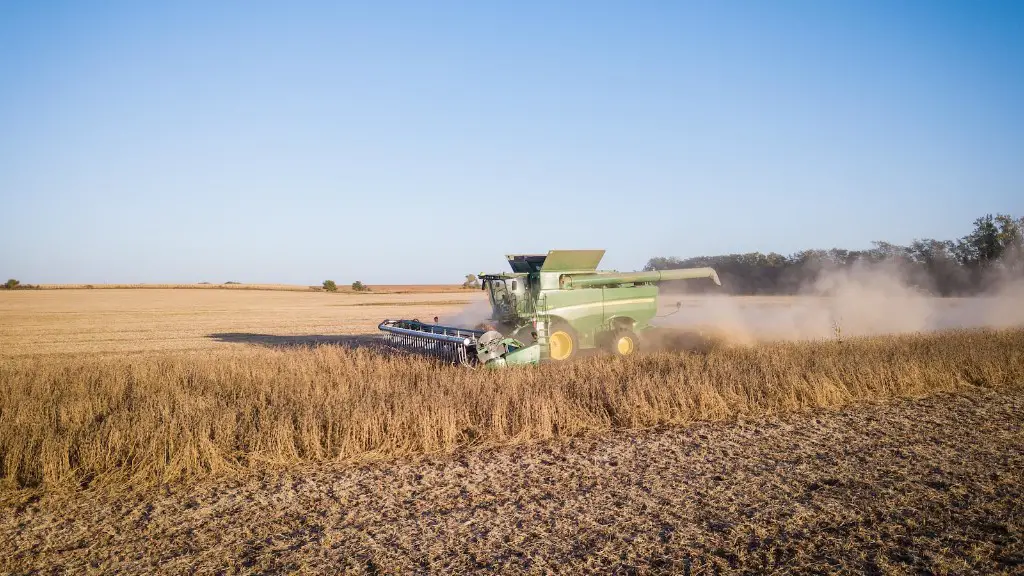agriculture has a profound impact on rivers. It is a leading cause of water pollution, contributing to excess sediment and nutrient runoff, as well as chemical contamination. Agricultural runoff is responsible for degraded water quality in nearly 40 percent of rivers assessed in the United States. In addition to water pollution, agriculture can also cause physical alterations to rivers. For example, the construction of dams and levees can disrupt the natural flow of water, while land clearing can increase erosion and sedimentation. These impacts can jeopardize the health of river ecosystems and the services they provide.
Agriculture affects rivers in a few ways. The most direct way is via water abstraction, where water is taken from rivers for irrigation. This can reduce the flow of the river, which can have an effect on water quality and the habitat for plants and animals. In some cases, agricultural runoff can also lead to pollution of rivers.
How does agriculture impact rivers?
Excessive irrigation can have a negative impact on water quality for a number of reasons. First, it can cause erosion, which can transport nutrients, pesticides, and heavy metals into waterways. Second, it can decrease the amount of water that flows naturally in streams and rivers, which can lead to a buildup of selenium, a toxic metal that can harm waterfowl reproduction.
One of the major ways that poor water quality can affect the quality and safety of food crops is through irrigation. When crops are irrigated with water that is contaminated with germs or other pollutants, those contaminants can end up on the crops themselves. If people then consume those contaminated crops, they can become ill. Poor water quality can also affect crops in other ways, such as through the contamination of soil or the spread of diseases.
How does agriculture pollute river
Pesticides and fertilizers are the main culprits when it comes to water pollution from agriculture. These chemicals can contaminate both groundwater and surface water, as can organic livestock wastes, antibiotics, silage effluents, and processing wastes from plantation crops.
Pesticides and fertilizers can end up in water bodies through a variety of means, including runoff from fields during rain or irrigation, leaching through soil into groundwater, and direct discharge of wastewater from agricultural facilities. Once in water, these pollutants can have serious impacts on the environment and human health.
For example, pesticides can kill aquatic plants and animals, and fertilizers can cause excessive growth of algae and other aquatic plants, leading to decreased oxygen levels in the water and creating conditions that are unfavorable for many aquatic species. In addition, these pollutants can also end up in the drinking water supply, posing risks to human health.
There are a number of ways to reduce the water pollution from agriculture, including using less harmful pesticides and fertilizers, planting buffer zones of vegetation around water bodies to filter runoff, and properly managing livestock wastes.
The leading cause of impairments in rivers is siltation and nutrients. For lakes and estuaries, nutrients are the leading pollutants. Agriculture is identified as the single largest source of impairments for rivers and lakes. Nutrients from agricultural sources can cause excessive growth of aquatic plants and algae, leading to impaired water quality and decreased oxygen levels in the water. Siltation from agricultural activities can also clog river habitats and reduce the amount of oxygen that reaches the river bottom.
How does agriculture waste water?
Agricultural wastewater can come from a variety of sources, including but not limited to manure, milking center wash water, barnyard and feedlot runoff, egg washing and processing, slaughterhouse wastewaters, horse washing waters and runoff associated with composting. Each type of wastewater may require different treatment methods in order to be safely discharged into the environment.
Agricultural runoff is one of the leading causes of water pollution. It occurs when farmers overgraze their land, overwork the soil, or apply pesticides, irrigation water, and fertilizer in an ineffective manner. As a result, harmful chemicals and nutrients runoff into nearby waterways, where they can contaminate drinking water supplies, damage aquatic ecosystems, and impair the quality of life for people who depend on these resources.
What are the impacts of agriculture on water quality?
Agriculture accounts for 70 percent of water withdrawals worldwide and plays a major role in water pollution. Farms discharge large quantities of agrochemicals, organic matter, drug residues, sediments and saline drainage into water bodies, causing contamination and pollution. Improper agricultural practices can lead to serious water pollution problems that adversely affect human health, ecosystems and the economy. To mitigate these problems, farmers need to adopt best management practices to minimize agrochemical use, reduce soil erosion and minimize wastewater discharge.
Some modern farming practices can lead to soil not being able to store or filter as much water, particularly on certain types of soil. These “degraded” soil conditions can reduce the soil’s ability to absorb rain and lead to increased water running off, particularly during storm events. To help mitigate this, farmers can use more sustainable practices that help preserve the soil’s natural ability to store and filter water.
Is agriculture the main cause of water pollution
Agriculture is the biggest source of water pollution, according to a new global review.
Nitrate from farming is the most common chemical contaminant found in groundwater aquifers, the review said. Other major pollutants include pesticides, antibiotics and hormones.
The report, published in the journal Science, said that while the problem was largely hidden, water pollution from agriculture has major consequences for human health and the environment.
The authors called for urgent action to address the problem, including better management of fertilizer use, better wastewater treatment and stricter regulation of agricultural chemicals.
Irrigation is a crucial component of agricultural production, both in terms of the expansion of cultivable land and in terms of higher crop yields. Without irrigation, much of the world’s land would be unsuitable for agriculture, and crop yields would be significantly lower.
Are rivers good for agriculture?
The article “Rivers of Food” estimates that 25% of the world’s food comes from cropland irrigated by river water. River sediment also creates and sustains deltas, which produce 4% of food, and flood recession agriculture covers an estimated 10 million hectares, which produces around 1%.
On average, farms around the world account for 70% of all water that is consumed annually. Of that 70% used by farmers, 40% is lost to the environment due to poor irrigation systems, evaporation, and overall poor water management. Irrigation systems are often not well-maintained, leading to water being wasted through evaporation and runoff. In addition, many farmers do not have a good understanding of how to properly managed their water usage, leading to further losses. Improving irrigation systems and water management practices on farms could lead to significant reductions in water usage, benefiting both the environment and farmers themselves.
What is the negative effect of agriculture
Agriculture is the leading source of pollution in many countries, with pesticides, fertilizers and other toxic farm chemicals poisoning fresh water, marine ecosystems, air and soil. These chemicals can also remain in the environment for generations. To protect our natural resources, it is essential to reduce agricultural pollution.
Agricultural activity is a leading cause of water pollution, due to the excessive use of pesticides and chemical fertilizers. These chemicals leach into the groundwater and eventually end up in surface water bodies, where they can detriment the aquatic ecosystem. To protect our water resources, it is important to reduce the amount of pesticides and fertilizers used in agriculture.
What type of agriculture causes pollution?
Agricultural pollution has many different sources. Nitrogen-based fertilizers can produce potent greenhouse gases and can overload waterways with dangerous pollutants. Chemical pesticides can contaminate our air and water or reside directly on our food. Agricultural pollution is a serious problem that needs to be addressed.
Water pollution is a huge global problem. There are many causes of water pollution, but some of the main ones are global warming, deforestation, industry, agriculture and livestock farming, rubbish and faecal water dumping, maritime traffic, and fuel spillages.
Global warming is melting glaciers and ice caps, which is causing sea levels to rise and leading to coastal flooding. This flooding can contaminate water supplies with salt water, which is poisonous to humans and other organisms.
Deforestation is another major cause of water pollution. When trees are cut down, the soil is no longer held in place and can be washed away by rain. This can lead to sediment buildup in waterways, which can then lead to reduced water quality and decreased oxygen levels.
Industry, agriculture and livestock farming are all major sources of water pollution. These activities can release a range of pollutants into waterways, including chemicals, nutrients, pesticides and heavy metals. These pollutants can then have a range of negative effects on water quality, including reducing oxygen levels, promoting the growth of harmful algae and bacteria, and making water unfit for human consumption.
Rubbish and faecal water dumping are also major causes of water pollution. Rubbish can block waterways and lead to the build-
What agriculture takes the most water
Water-intensive crops require large amounts of water for production. The most common water-intensive crops are rice, soybeans, wheat, sugarcane, cotton, alfalfa, and pasture. These crops are typically grown in areas with high rainfall or irrigation.
The world’s demand for water is growing at an unsustainable rate, with agriculture accounting for the majority of global water withdrawals. With the world’s population projected to grow by billions over the next several decades, the need for water-efficient agriculture practices has never been greater. One way to increase water efficiency in agriculture is to implement more irrigation systems that use less water. Another way to increase water efficiency is to practice crop rotation, where different crops are grown in the same field in different years. This allows the soils to recover from the previous crop, leading to less water being needed.
Final Words
Agriculture can have a significant effect on rivers through the introduction of pollutants and sediments into the water. These pollutants can come from animal waste, chemicals used in farming, and erosion caused by farming activities. They can lead to decreased water quality and decreased biodiversity in rivers, as well as other negative consequences.
Agriculture has had a profound impact on rivers, both good and bad. On the plus side, agriculture has allowed for the growth of civilizations and the development of cities and towns along riverbanks. Agriculture has also provided a means of transportation for goods and people. On the downside, agriculture has often led to the depletion of river ecosystems through the use of pesticides and fertilizers, as well as the diversion of water for irrigation purposes. With the increasing global demand for food, it is evident that agriculture will continue to play a significant role in the future of rivers.
